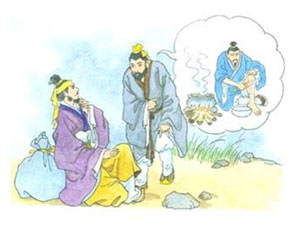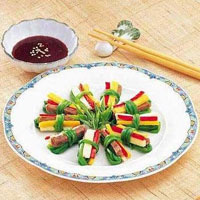Qingming cultural background
Updated:2012-03-30 14:33
(chinadaily.com.cn)
 | |
| About Qingming Festival | |
| The Qingming Festival, or Tomb Sweeping Day, which falls on April 4 this year, is a centuries-old tradition in China meant to mourn the death of ancestors. Qingming, which means clear and bright, happens in early April every year and signals the onset of warmer weather, spring and family outings. | |
| Origins | |
|
In order to commemorate Jie, the lord ordered the day of his death be commemorated as Hanshi (Cold Food) Festival – a day when only cold food could be eaten.
The second year, when the lord went to the mountain to pay sacrifice to Jie, he found the willows revived, so he gave instructions that the day after Hanshi Festival was to be Qingming Festival. Later, the two festivals became combined as one - Qingming Festival. |
| Customs |
| Tomb Sweeping Day is a time for various activities, the more popular including tomb sweeping, spring outings, and kite flying. Some other customs, such as putting willow branches on gates and riding on swings, adds infinite joy to the festival. The festival integrates both sadness and happiness. |
|
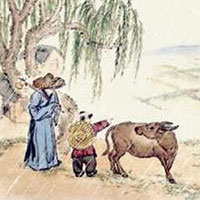 Taqing (Spring Outing) |
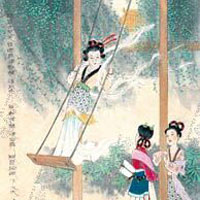 Swinging |
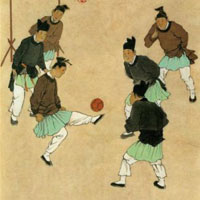 Cuju |
|
Eating Cold Food |
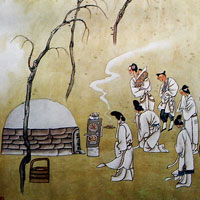 Tomb Sweeping |
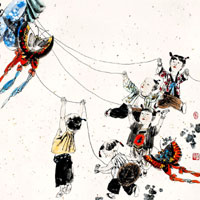 Kite Flying |
